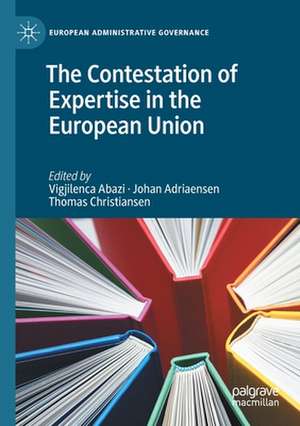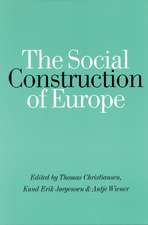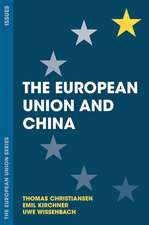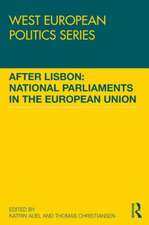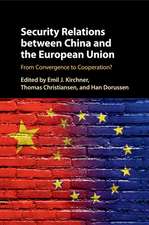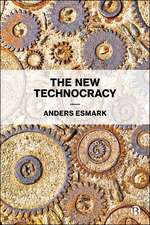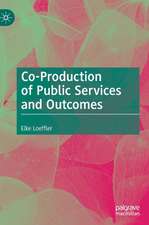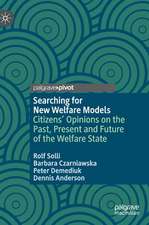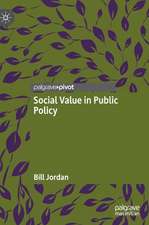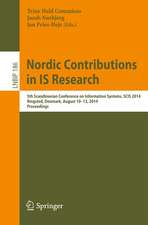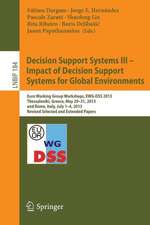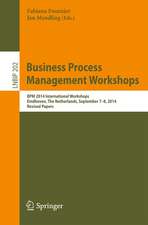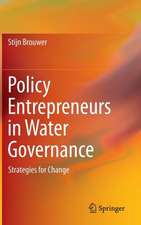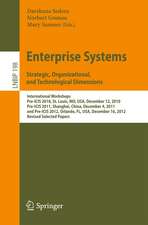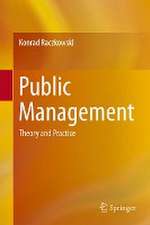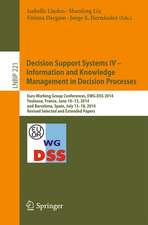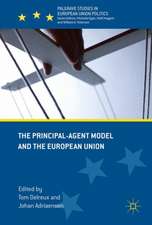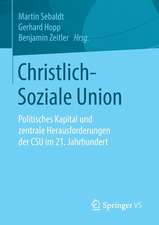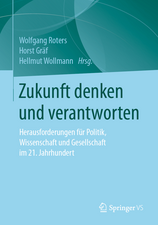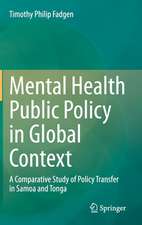The Contestation of Expertise in the European Union: European Administrative Governance
Editat de Vigjilenca Abazi, Johan Adriaensen, Thomas Christiansenen Limba Engleză Paperback – 17 noi 2021
Chapter 6 is available open access under a Creative Commons Attribution 4.0 International License via link.springer.com.
| Toate formatele și edițiile | Preț | Express |
|---|---|---|
| Paperback (1) | 694.22 lei 6-8 săpt. | |
| Springer International Publishing – 17 noi 2021 | 694.22 lei 6-8 săpt. | |
| Hardback (1) | 698.47 lei 6-8 săpt. | |
| Springer International Publishing – 17 noi 2020 | 698.47 lei 6-8 săpt. |
Din seria European Administrative Governance
- 17%
 Preț: 460.49 lei
Preț: 460.49 lei -
 Preț: 380.07 lei
Preț: 380.07 lei -
 Preț: 385.84 lei
Preț: 385.84 lei -
 Preț: 388.72 lei
Preț: 388.72 lei -
 Preț: 390.63 lei
Preț: 390.63 lei -
 Preț: 385.47 lei
Preț: 385.47 lei -
 Preț: 388.52 lei
Preț: 388.52 lei - 18%
 Preț: 1234.14 lei
Preț: 1234.14 lei - 15%
 Preț: 641.53 lei
Preț: 641.53 lei -
 Preț: 388.52 lei
Preț: 388.52 lei -
 Preț: 381.59 lei
Preț: 381.59 lei -
 Preț: 386.00 lei
Preț: 386.00 lei -
 Preț: 386.39 lei
Preț: 386.39 lei - 18%
 Preț: 722.58 lei
Preț: 722.58 lei - 15%
 Preț: 695.34 lei
Preț: 695.34 lei - 18%
 Preț: 1112.48 lei
Preț: 1112.48 lei - 18%
 Preț: 887.83 lei
Preț: 887.83 lei - 15%
 Preț: 703.20 lei
Preț: 703.20 lei - 15%
 Preț: 530.75 lei
Preț: 530.75 lei - 18%
 Preț: 781.00 lei
Preț: 781.00 lei - 15%
 Preț: 522.42 lei
Preț: 522.42 lei - 15%
 Preț: 496.48 lei
Preț: 496.48 lei - 18%
 Preț: 786.98 lei
Preț: 786.98 lei - 18%
 Preț: 729.53 lei
Preț: 729.53 lei
Preț: 694.22 lei
Preț vechi: 816.73 lei
-15% Nou
Puncte Express: 1041
Preț estimativ în valută:
132.84€ • 138.98$ • 110.35£
132.84€ • 138.98$ • 110.35£
Carte tipărită la comandă
Livrare economică 02-16 aprilie
Preluare comenzi: 021 569.72.76
Specificații
ISBN-13: 9783030543693
ISBN-10: 3030543692
Pagini: 239
Ilustrații: XV, 239 p. 6 illus., 2 illus. in color.
Dimensiuni: 148 x 210 mm
Greutate: 0.35 kg
Ediția:1st ed. 2021
Editura: Springer International Publishing
Colecția Palgrave Macmillan
Seria European Administrative Governance
Locul publicării:Cham, Switzerland
ISBN-10: 3030543692
Pagini: 239
Ilustrații: XV, 239 p. 6 illus., 2 illus. in color.
Dimensiuni: 148 x 210 mm
Greutate: 0.35 kg
Ediția:1st ed. 2021
Editura: Springer International Publishing
Colecția Palgrave Macmillan
Seria European Administrative Governance
Locul publicării:Cham, Switzerland
Cuprins
Chapter 1. Introduction: The Role of Scientific Expertise in EU Policy-making: Ever Greater Contestation?.- Chapter 2. Conceptualising the Role of Expertise in EU Policy-making.- Chapter 3. The Europeanization of national knowledge regimes.- Chapter 4. Winning hearts, losing minds: politicisation and the contestation of expertise in the context of TTIP negotiations.- Chapter 5. The European Commission’s Expert Groups: Adapting to the Contestation of Expertise.- Chapter 6. The role of Expertise in the EU’s Emerging Diplomatic System.- Chapter 7. Climate Science in the Courts.- Chapter 8. Judicial review of science-based measures under WTO law.- Chapter 9. Contesting Concentrated Scientific Power: The case of the European Commission’s Chief Scientific Adviser.- Chapter 10. Conclusion: The Contestation of Expertise in the EU.
Notă biografică
Vigjilenca Abazi is Assistant Professor of EU Law at Faculty of Law, Maastricht University, the Netherlands.
Johan Adriaensen is Assistant Professor at the Faculty of Arts and Social Sciences, Maastricht University, the Netherlands.
Thomas Christiansen is Professor of Political Science and European Integration in the Political Science Department, Luiss Università Guido Carli, Italy.
Johan Adriaensen is Assistant Professor at the Faculty of Arts and Social Sciences, Maastricht University, the Netherlands.
Thomas Christiansen is Professor of Political Science and European Integration in the Political Science Department, Luiss Università Guido Carli, Italy.
Textul de pe ultima copertă
This book examines the position and role of expertise in European policy-making and governance. At a time when the very notion of expertise and expert advice is increasingly losing authority, the book addresses these challenges by empirically examining specific administrative processes and institutional designs in the European Union. The first part of the volume theorizes expertise and its contestation by examining accounts of the legitimate institutional design of knowledge production processes and exploring the theoretical links of Europeanisation and expertise. The second part of the book delves into empirical institutionalist accounts of expertise and maps the role of experts in a variety of EU institutions but also explains the implications when EU bodies themselves are in an ‘expert’ position, such as agencies. The book offers insights into how individual experts deal with the challenge of producing reports that will be heard by policy-makers, while at the same time preserving their independence. Broadening its scope, the book then expands the analysis to the role of advisory committees in light of the shift from a reliance primarily on in-house expertise to including more external experts in advisory groups in the European Commission and European Parliament as well as at the European External Action. In the third part, the book opens the lens to developments beyond the EU by taking into account two highly pertinent fields: climate change and trade. These fields are highly complex, fast-developing, and politicised issues, and the book engages with them in order to provide an outside-in perspective on expertise.
Vigjilenca Abazi is Assistant Professor of EU Law at Faculty of Law, Maastricht University, the Netherlands.
Johan Adriaensen is Assistant Professor at the Faculty of Arts and Social Sciences, Maastricht University, the Netherlands.
Thomas Christiansen isProfessor of Political Science and European Integration in the Political Science Department, Luiss Università Guido Carli, Italy.
Chapter 6 is available open access under a Creative Commons Attribution 4.0 International License via link.springer.com.
Thomas Christiansen isProfessor of Political Science and European Integration in the Political Science Department, Luiss Università Guido Carli, Italy.
Chapter 6 is available open access under a Creative Commons Attribution 4.0 International License via link.springer.com.
Caracteristici
Examines the position and role of expertise in European policy-making and governance Maps the role of experts in a variety of EU institutions Analyses the role of expertise in EU policy-making on trade and climate change
